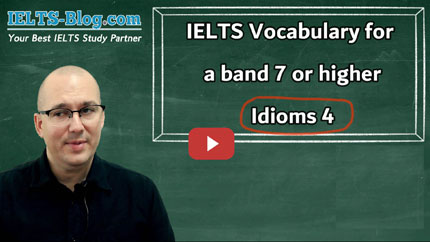The best way to learn how your Speaking test is marked, and what your Examiner needs to hear to give you a high score, is by asking them. But how can you do that? You can’t get direct access to IELTS examiners, because they don’t do private tutoring – their work contract prohibits that.
So, here is the answer you were searching for!
The videos you are about to watch are just as good as a private consultation with an examiner. Except they are better, because you get to see not one, but TWO experienced IELTS examiners sharing some information you won’t get ANYWHERE except from a REAL IELTS examiner.
Who are the Examiners?
You already know Adam, who was examining IELTS test takers for 10 years until very recently. Today we have Patrick joining Adam and doing an interview to share with you things you NEED to know, that NO ONE will tell you. Patrick is an active IELTS examiner, which is why you can’t see his face. We don’t want him to get in trouble for helping you! He is examining in 3 countries and teaching IELTS in 7 countries.
So forget about other YouTube videos for 20 minutes. If anything is worth your time, it’s the ‘IELTS Examiner Secrets’ series! There are four videos in total in the series, and you will get access to the other two later – they will be added on this page soon (keep checking back!).
Watch IELTS Examiner Secrets and Tips – Part 1
Watch IELTS Examiner Secrets and Tips – Part 2
So, what’s in the videos?
- Some myth-busting: is IELTS really easier in some countries compared to others?
- Examiners are human and first impression counts – Patrick suggests a great way to connect with your examiner.
- How can examiners catch you using memorised language?
- How IELTS Examiners mark Speaking Part 2 (and things to avoid in your speech, to score higher)
- Why Speaking Part 3 is SO important to your score, and how ace it.
https://ift.tt/1yra8oP
from IELTS-Blog https://ift.tt/2TykJNL
via IFTTT


